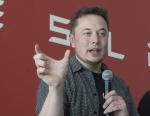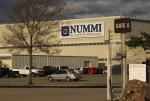AP Photo/Rich Pedroncelli
It's starting to look as if the United Auto Workers is preparing to mount a serious unionization effort at Tesla's factory in Fremont, CA.
A union at Tesla has been rumored since last year, but the process has intensified in the last week as a Tesla worker alleged that working conditions at the plant are a problem — and CEO Elon Musk pledged to investigate.
Whether working conditions are Tesla will intensify a union push is somewhat beside the point. We already know that over the past two years, the factory has run hard to meet production and delivery goals. Working at Tesla obviously means, at times, working hard.
Addressing working conditions is, however, part of a larger process that would come with a union contract, which would establish collective bargaining at Tesla, rather than the current "at will" arrangement. This is just Unionization 101, and while claims that Tesla's workers are mistreated gets the headlines, the true impact for the carmaker will be to codify a host of labor issues, from compensation to benefits.
It would be significant if Tesla goes union, but it wouldn't be surprising: the Fremont factory was a union shop when it was jointly operated by General Motors and Toyota and was called NUMMI (the automakers established it so that GM could learn Toyota's "lean" manufacturing techniques).
That hasn't stopped speculation that a successful unionization effort at Tesla would be game-changer. According to Bloomberg's David Welch:
Organizing the Tesla plant would be a significant victory for labor at a time of shrinking U.S. union membership. The total share of U.S. workers who belong to a union fell to 10.7 percent last year, a record low. Boeing Co. employees in South Carolina voted overwhelmingly against unionization Wednesday, dealing a blow to the embattled labor movement’s efforts to expand its ranks under President Donald Trump.
This is not a good comparison. The Boeing plant is in a southern "right to work" state, where unions have never held sway (every single car factory built by a so-called foreign transplant from Japan, Germany, or South Korea is located in the region). Tesla's factory, formerly a union plant, is in labor-friendly California and Tesla has always half expected the UAW to show up. If Musk and his team had wanted to dodge organized labor, they would have set up shop in Georgia.
The usual anti-union playbook with 21st-century companies is for management to argue that unions are an inefficient vestige of the 1930s, when workers were routinely abused and needed protection, and that they impede a company's nimbleness and ability to pursue top talent.
That argument shouldn't hold much sway at Tesla, where the UAW will be trying to organize the assembly line workers, not the front office or software engineers. Still, there's no guarantee of success, and the UAW has been in retreat for the better part of a decade, granted wage concessions in Detroit and failing to organize a VW factory in Tennessee, even with tacit support from VW against the rightward-leaning, anti-union state government (unions are a big deal in Germany, and VW wanted to establish a works council at the Tennessee plant).
Nonetheless, because it's California and because the factory was UAW before, the union stands a much better chance. It is misguided, however, to say that a unionized Tesla would be a great victory for labor. Rather, a union would simply restore what was in place before Tesla arrived in the scene.
NOW WATCH: Elon Musk came up with an ingenious solution to a Tesla owner's Twitter complaint in just 6 days
See Also:

